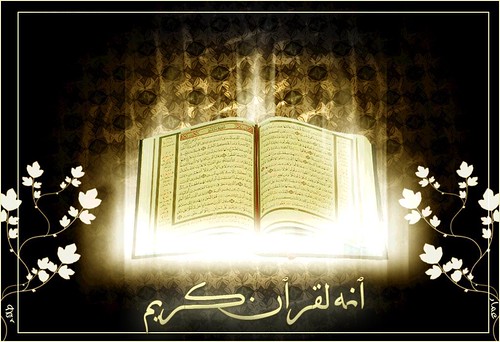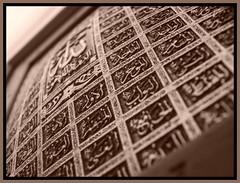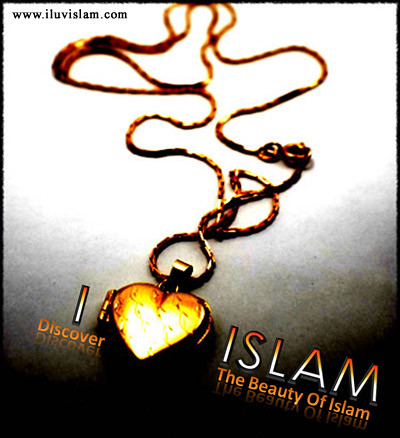
Balai Islam KUAZ  Myspace Islam Graphics Hari ini adalah milikku Waktu Solat  Dapatkan Mesej Bergambar di Sini Al-waqt Keluarga Balai Islam KUAZ Dalam proses pengemaskinian  Islam Graphic Comments Mutiara Ilmuan Take time to THINK. It is the source of power Pimp My Profile
Take time to READ. It is the foundation of wisdom Take time to QUIET. It is the apportunity to seek God Take time to DREAM. It is the future made of Take time to PRAY. It is the greatest power on earth ~Munaqasyah~  Myspace Islam Graphics ~Allah in my heart~ 
~Tetamu~ ~Munajatku~ archives September 2008 October 2008 November 2008 December 2008 January 2009 February 2009 March 2009 April 2009 May 2009 June 2009 July 2009 August 2009 September 2009 December 2009 January 2010 February 2010 March 2010 July 2010 ~Layar~ IslamOnline MuslimDiary SaifulIslam ~Balai Islam UM~ Balai Islam KK1 Balai Islam KK3 Balai Islam KK4 Balai Islam KK7 Balai Islam KK12  Dapatkan Mesej Bergambar di Sini  Dapatkan Mesej Bergambar di Sini credits . . . skin by: Jane |
Sunday, December 7, 2008 @ 8:59 PM
What is eid ul adha? Eid al-Adha (Arabic: عيد الأضحى ‘Īd ul-’Aḍḥā) or the Festival of Sacrifice is a religious festival celebrated by Muslims and Druze worldwide in commemoration of the willingness of Ibrahim (Abraham) to sacrifice his son as an act of obedience to God. The devil tempted Ibrahim by saying he should disobey God and spare his son. As Ibrahim was about to sacrifice his son, God intervened and instead provided a lamb as the sacrifice. This is why today all over the world Muslims who have the means to, sacrifice an animal (usually a goat or a sheep), as a reminder of Ibrahim's obedience to God. The meat is then shared out with family, friends (Muslims or non-Muslims), as well as the poor members of the community. (Islam names Ishmael as the son who was to be sacrificed, whereas the Judeo-Christian name Isaac). Eid al-Adha is one of two Eid festivals celebrated by Muslims, whose basis comes from the Quran.[1] (Muslims in Iran celebrate a third, non-denominational Eid.) Like Eid el-Fitr, Eid al-Adha begins with a short prayer followed by a sermon (khuṭba). Eid al-Adha annually falls on the 10th day of the month of Dhul Hijja (ذو الحجة) of the lunar Islamic calendar. The festivities last for two to three days or more depending on the country. Eid al-Adha occurs the day after the pilgrims conducting Hajj, the annual pilgrimage to Mecca in Saudi Arabia by Muslims worldwide, descend from Mount Arafat. It happens to be approximately 70 days after the end of the month of Ramadan. Source:http://en.wikipedia.org/wiki/Hari_raya_haji What Should We Sacrifice? First, we are asked to sacrifice our possessions — the things that we love to own and collect, such as gold and silver, houses and cars, clothes and jewelry, and cattle and land. All these are the possessions of this world. Then we love our families and ourselves. All of these are to be sacrificed in the way of Allah if the need arises: (O you who believe, shall I lead you to a merchandise that will deliver you from a painful chastisement? That you believe in Allah and His Messenger and that you strive in the cause of Allah with your property and your lives.) (As-Saff 61:10–11) Much more difficult is the sacrifice of time. All acts of worship require our commitment to finding time to fulfill our obligations toward Allah and our fellow human beings. Still, more difficult is to forgo our own opinions and to submit our ego to the dictates of Shari`ah. Customs and traditions sometimes conflict with the clear injunctions of Shari`ah. We may have to overcome the bitterness of family and withstand the pressures of society. It is only then that we will really succeed in obeying Allah. Immolating a goat, sheep, or camel is just symbolic. We see that the innocent animal is firmly under our control, prepared to die for the will of its Creator. Are we ready to sacrifice our lives, our possessions, our inner desires, and our ego? Are we willing to place ourselves, like helpless animals, under the control of the will of our Creator? That is the real sacrifice, otherwise each year, when `Eid Al-Adha comes, we can diligently sacrifice some animals and feel satisfied that we have fulfilled our obligation. There is no doubt that by offering a sacrificial animal we perform an act of worship for which we will be rewarded. Almighty Allah says, (It is not their flesh or their blood that reaches Allah, but it is the piety from you that reaches Him.) (Al-Hajj 22:37) Let's prepare ourselves for a life of sacrifice. Without making sacrifices, we will not be able to start the revival of Islam. We should be ready to sacrifice our time, our wealth, our resources, our lives, and our personal likes and dislikes. If we sincerely strive in the cause of Allah, He will open His doors of success for us. This is His promise: (And (as for) those who strive in Our (cause), We will most certainly guide them to Our ways.) (Al-`Ankabut 29:69) Together we can fulfill the obligation for which this Ummah is created. Without making sacrifices, the revival of Islam will remain only a dream. Making sacrifices is the way to achieving Allah's pleasure. This was the way of Prophet Abraham and Prophet Muhammad, who proclaimed, ("Surely my Prayer and my sacrifice and my life and my death are (all) for Allah, Lord of the Worlds") (Al-An`am 6:162). * This article has been taken with modifications from a book titled Lift Up Your Hearts published by the Islamic Foundation. ** Abdur Rashid Siddiqui (1932- ) was one of the earliest members of the UK Islamic Mission and is a member of its Shura. He was one of the founder members of the Islamic Society of Britain and was the Chairman of its Shura Council for many years. He is the Secretary of the Board of Trustees of the Islamic Foundation, UK. Source: http://www.islamonline.net/English/Eid_AlAdha/1428/topic_02/14.shtml Labels: FAQ |